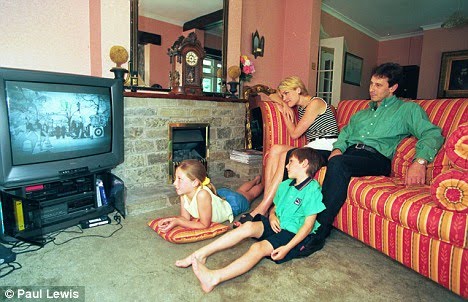Now and again as an audience saturated with media and entertainment, Cinema is a huge social gathering to which we can all come together in an intimate space to watch a film of any genre. Sitting down next to a friend or even a stranger at the cinema can feel empowering, especially while your brain processes all sorts of visual and auditory moving images. Whether one might be watching a sad, romantic, horrific or humorous film, we tend to react in ways far more exaggeration than on the outside world. Not only do we react but we respond with a scream, laugh, touch or engage with the ‘other’ sitting next to us. One must question whether it is the intimate dark atmosphere that is present within a cinema that psychologically affects our thought processes. Enabling us to escape from social boundaries and expectations of what is and what isn’t acceptable behaviour. For example quite recently I went to see Sinister (2012). A girl who I did not know began to hide her face with her scarf, a sudden jump scare in the film automatically made her cling to my arm. She later apologise after calming down, but her response was automatic and uncontrollable.
Does being scared trigger intimate behaviour?
Audiences “enjoy the experience of being scared in an environment that is actually safe. Horror films are another example of this phenomenon.” (Fritscher, 2012)

There are many forms of intimate moments within cinema that make people respond to a stimulus such as a film in various ways. However, sitting at home watching the television with family members. Does this still create an intimate moment, a more calming and relaxing intimacy, a more meaningful intimacy?

Sitting with family members or friends/strangers can have a different impact on intimate feelings within the room. Although family members are much more comfortable with each other, sitting down and relaxing and being intimate with them can strengthen the relationships a lot more than sitting in a cinema. As communication with one another is important in order to enable intimate moments, for in a cinema it is socially unacceptable to talk, we can only express ourselves through physical acts of touching and the occasional whisper.
I think the power of cinema is a lot more intimate than that of sitting down at home, people today constantly enjoy going to the the big screen. Audiences become addicted the idea of sitting with other strangers/friends and sharing intimate emotions that relate to them. Such as scene’s of someone dying, things that can affect an audience members on a personal level.
Focusing on a image or display tends to help intimacy be created, as it relaxes and represses any awkwardness that could be at the back of their minds.
If your not touching but sitting next to each other, surely sitting next to each other is a beginning phase in being intimate with someone you hardly know within western society?
Written by Jordan, edited by Leanne McKettrick
Works Cited
Fritscher, Lisa (2012) Psychology of Fear. Online: http://phobias.about.com/od/introductiontophobias/a/psychologyfear.htm (accessed on 9th December 2012)
